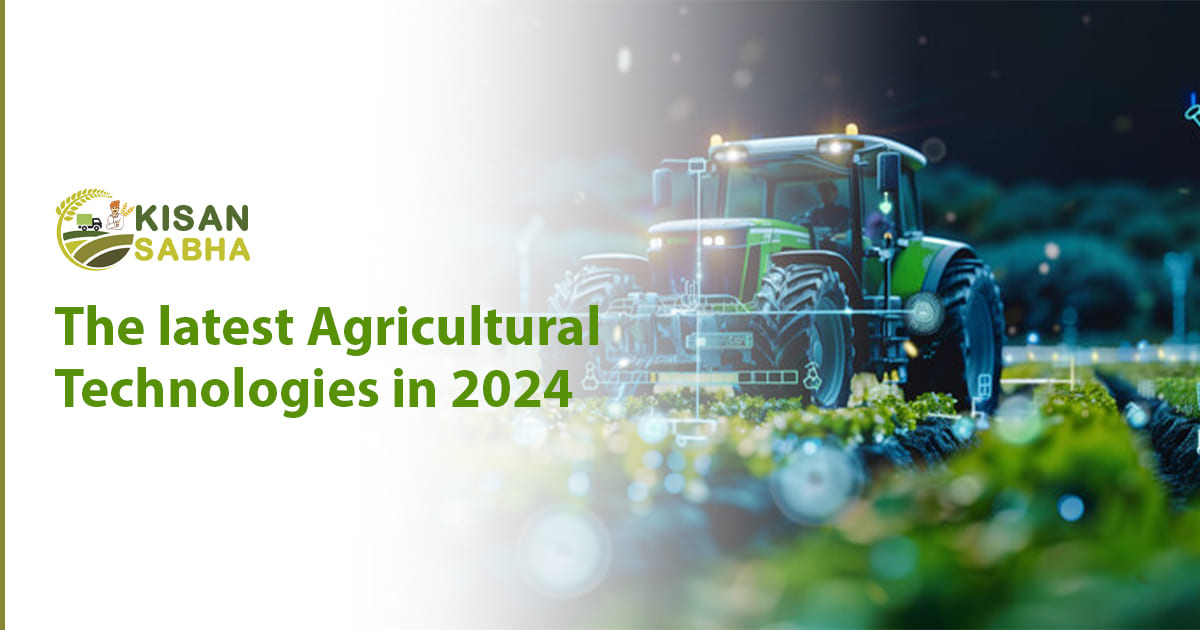Agricultural technology, also known as AgTech, is the use of technology in agriculture to improve efficiency, productivity, and sustainability. AgTech encompasses a wide range of technologies, including drones, sensors, robotics, artificial intelligence (AI), and big data. AgTech is rapidly evolving, and new technologies are emerging all the time. Here are some of the latest agricultural technologies that are having a major impact on the industry:
5 Latest Agricultural Technologies
Drones
Drones are increasingly being used in agriculture for a variety of tasks, including:
- Crop monitoring: Drones can be equipped with cameras and sensors to monitor crop health, detect pests and diseases, and assess water needs.
- Precision agriculture: Drones can further be used to map fields and identify areas that require more or less fertilizer, water, or pesticides.
- Spraying: Drones can be used to spray crops with pesticides, herbicides, and fertilizers more precisely and efficiently than traditional methods.
Sensors
Farmers employ sensors in agriculture to collect data on a variety of factors, including soil moisture, nutrient levels, and crop growth. As a result, they can improve irrigation practices, fertilization strategies, and pest management. Moreover, this sensor-driven approach enables more precise and efficient farming methods.
Robotics
Robotics is being used in agriculture to automate a variety of tasks, such as planting, harvesting, and weeding. This can help to reduce labor costs and improve efficiency.
Artificial intelligence
AI in agriculture helps to develop new tools and solutions for a variety of problems. For example, AI helps in developing new crop varieties that are resistant to pests and diseases and to develop new ways to detect and manage pests and diseases.
Big Data
Farmers use big data in agriculture to analyze large amounts of data from sensors, drones, and other sources to identify trends and patterns. Consequently, this information enables them to make better decisions about crop management, irrigation, and pest control. Furthermore, big data applications in agriculture continue to expand, offering new opportunities for improved efficiency and productivity.
How the Latest Agricultural Technologies are Impacting the Industry
The latest agricultural technologies are having a major impact on the industry in several ways. For example, these technologies are helping to:
- Increase productivity: AgTech can help farmers to produce more food with fewer resources. This is especially important in light of the growing global population and the need to feed more people with less land and water.
- Improve sustainability: AgTech can help farmers to reduce their environmental impact. For example, precision agriculture can help farmers to use less fertilizer and pesticides, and drones can help farmers to monitor their crops more efficiently, which can lead to reduced fuel consumption.
- Reduce costs: AgTech can help farmers to reduce their costs by automating tasks and improving efficiency. Therefore, it can make farming more profitable and sustainable in the long term.
Also Read:- Agriculture in 2024: Top 10 Countries Leading the Industry
Examples of the Latest Agricultural Technologies in Action
Here are some examples of how the latest agricultural technologies are helping:
- Farmers in the United States are using drones to monitor their crops for signs of pests and diseases. This allows them to identify problems early and take corrective action before they cause significant damage.
- Farmers in Brazil are using sensors to monitor soil moisture levels. Thus this helps in optimizing irrigation schedules and reducing water waste.
- Farmers in the Netherlands are using robots to harvest lettuce. This has helped to reduce labor costs and improve efficiency.
- Scientists in the United States are using AI to develop new crop varieties that are resistant to pests and diseases. Also, this could help to reduce the use of pesticides and improve food security.
- Farmers are using big data to analyze weather patterns and crop yields. This information can help to make better decisions about crop management and planting schedules.
The Future of Agricultural Technology
AgTech is a rapidly evolving field, and new technologies are emerging all the time. AgTech will likely continue to play an increasingly important role in agriculture in the years to come.
Some of the emerging trends in AgTech include:
- The use of AI to develop new crop varieties and farming practices.
- The use of robots to automate more and more tasks.
- The use of big data to make better decisions about crop management.
- The development of new sensors and technologies to monitor and manage crops more efficiently.
Therefore, these trends have the potential to revolutionize agriculture and make it more productive, sustainable, and profitable.
Conclusion
The latest agricultural technologies are having a major impact on the industry by increasing productivity, improving sustainability, and reducing costs. These technologies can automate tasks, improve efficiency, and make better decisions about crop management. However, AgTech is a rapidly evolving field, and these technologies will likely continue to play an increasingly important role in agriculture in the years to come.




